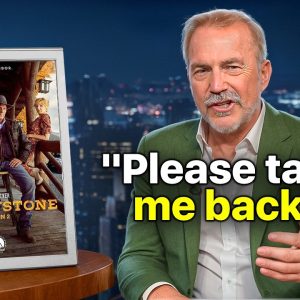In the world of reality television, where emotions run high and relationships are tested in the public eye, few couples have sparked as much controversy as Sophie and Rob from 90 Day Fiancé. As the tell-all episodes unfold, viewers are drawn into a whirlwind of accusations, manipulations, and the toxic dynamics that define their relationship. With Sophie’s dramatic allegations against Rob, many fans and commentators have begun to draw parallels between her behavior and that of Amber Heard, a figure similarly embroiled in scandal and public scrutiny. This comparison opens the door to a deeper exploration of how narratives shape perception and the intricacies of accountability in volatile relationships.
Sophie’s Manipulation and Accusations
Sophie has captivated the audience not just with her beauty but with her calculated approach to conflict. During the tell-all episodes, she levies serious accusations against Rob, claiming he is not only abusive but also a gay prostitute. However, the lack of concrete evidence to support her claims raises eyebrows. “In part four of the tell-all, Sophie accused Rob of being a gay prostitute but failed to provide any proof,” a commentator notes, underlining how such serious allegations can serve to synergize with a narrative but can also mislead an audience. Much like the drama surrounding Amber Heard’s accusations against Johnny Depp, Sophie’s confrontational style seems crafted to paint her in a sympathetic light while casting Rob in an unflattering one. This strategic manipulation fuels speculation about her motivations and instills doubt about the authenticity of her claims.
Sophie’s actions have ignited debates among fans about accountability in relationships. Viewers express frustration that instead of holding each other accountable during the tell-all, hosts often change the subject when tensions rise. “Every time something significant happens, the host merely redirects the conversation,” says a viewer. This lack of accountability can embolden individuals like Sophie to continue fabricating narratives, potentially harming their partners’ reputations without a fair chance at defense. Such patterns of behavior reflect ongoing themes in both Sophie’s narrative and the tumultuous saga of Heard and Depp, where public perception often sways with the tides of sensationalism, leaving the truth obscured.
The Impact of Social Media and Public Perception
As the drama unfolds, Sophie has taken to social media to further her narrative, sharing her side of the story with her followers. In an Instagram post following the tell-all, she asserts, “I left Rob because he was abusive.” Yet, this claim feels contradictory as she also acknowledges her previous reluctance to disclose the circumstances of their relationship. The duality of her narrative raises questions: if Rob’s behavior was so harmful, why did she remain silent for so long? This inconsistency mirrors Amber Heard’s tumultuous claims about her relationship with Depp, where the extensive media coverage and public debate surrounding their divorce only served to complicate the truth.
Moreover, Sophie’s timing and choice of platform reflect a calculated strategy to manipulate public opinion, reminiscent of how Heard utilized the media to shape her narrative. While Sophie seeks validation and support from her audience, her approach generates further scrutiny as potential holes in her accusations and contradictions surface, leading to backlash. The danger of social media as a platform for establishing one’s narrative becomes evident as individuals can orchestrate compelling stories that may not accurately reflect reality, leaving the other party with little recourse.
The Cycle of Accusations and Reactions
As Sophie continues to assert her perspective, the cycle of accusation and defense spirals. Rob, thrust into the center of public scrutiny, attempts to clarify his side but often finds himself overshadowed by Sophie’s dramatic outbursts. Accusations fly, with Rob attempting to dispel claims of being a prostitute and baffled by Sophie’s insistence on perpetuating false narratives. “It’s frustrating because every time I try to set the record straight, she just escalates,” Rob notes during a heated exchange, illustrating the toxic back-and-forth that defines their relationship.
This dynamic leaves viewers wondering about the implications of their conflict for others in similar situations. Just as many observed the damaging effects of the Depp-Heard trial on perceptions of domestic abuse, Sophie and Rob’s fight raises important questions about what constitutes truth in volatile relationships. The entanglement of personal grievances and public personas complicates matters, distracting from critical discussions about accountability and abuse. Fans debate whether Sophie is a victim of circumstance or an opportunistic manipulator—one who may risk losing credibility with her dramatic claims and reactivity.
The Search for Truth in the Midst of Drama
Ultimately, the story of Sophie and Rob serves as a cautionary tale about the complexities of reality television and the narratives it fosters. Sophie’s flamboyant personality and her desire to present herself as the victim echo the tumultuous patterns observed in the Heard-Depp case, igniting furious debates among fans and casting doubt on the integrity of their competing narratives. As their





